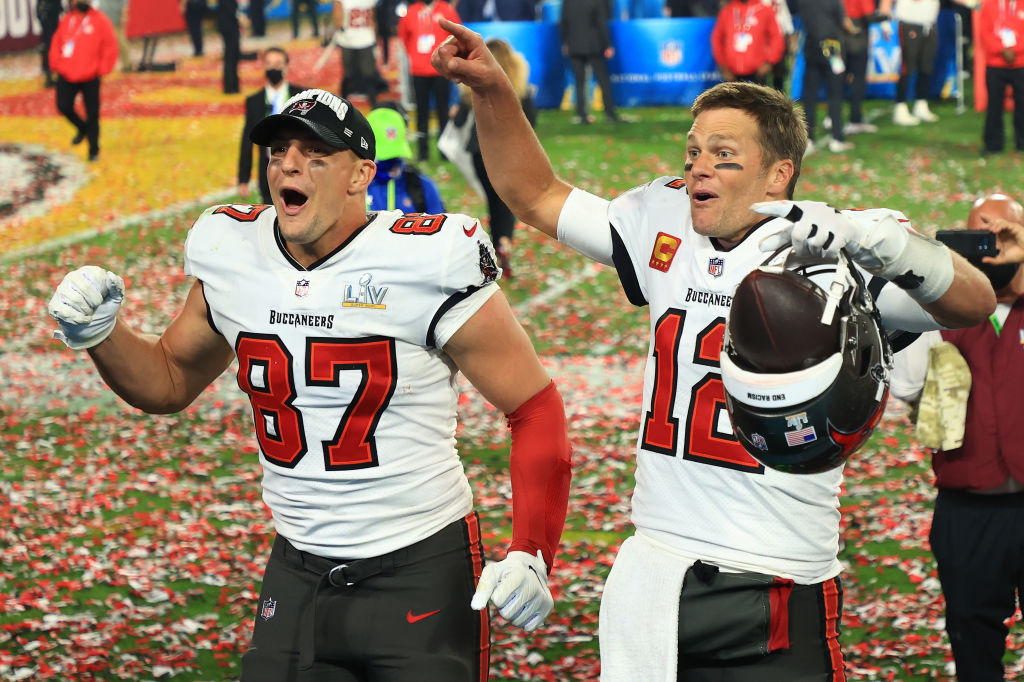Bookies look Stateside for betting wins

Whilst the UK seems to be on the road to clamping down on sports betting, the US is just gearing up.
This Sunday marks one of the most important days in the US calendar, and an even bigger opportunity for the gambling industry: the Super Bowl LVI.
The game is a “cultural event” more than just a sporting match-up, says FanDuel’s chief marketing officer Mike Raffensperger. FanDuel is now the largest gambling firm in the US as the country gradually, state-by-state, opens up to legal gambling.
FanDuel was snapped up by Paddy Power Betfair owner Flutter Entertainment back in 2018, with the Irish firm set on heavy investment in the US market.
As it stands today, there is still no federal legislation in the US that enables sports betting, meaning that each state has its own ability to regulate if they choose to do so.
This makes the landscape particularly complicated, but also a very lucrative one once cracked; FanDuel currently dominates around 42 per cent of the market share.
“What makes the landscape even more complicated is that each state also has its own nuances, which means that the US market looks different from say the UK or Europe”, Raffensperger explained.
A Flutter spokesperson echoed this point, and told City A.M.: “FanDuel had a unique position in that it was previously a daily fantasy sports operator, but had the brand strength which propelled it to number one.”
“There is so much room for growth, and with more states like California and Texas opening up to us in the next few years, these could be huge customer centres for us”, they added.
For Sunday’s game alone, Flutter expects to handle just over seven million bets, which will be around 70 per cent more than last year given the extra states that have come online in the US, including New York in recent weeks.
Flutter expects 98 per cent of bets through FanDuel, and two per cent of gamblers from UK brands. Last year, Paddy Power and Betfair brands took around £225,000 worth of British bets on the game, demonstrating how the niche is slowly becoming a norm.
However, what’s particularly interesting about the Super Bowl is that it attracts a lot of casual and first-time gamblers, which Raffensperger called “sideline spectators”.
In turn, this leads to a spike of “prop bets”, which could include anything from which team will win the coin flip to whether a non-quarterback will throw a touchdown.
Raffensperger revealed that an amusing example from this year’s match build-up has been the “correct score” bets that popped up from a Simpsons episode turned Twitter meme, which predicts a Bengals victory against the L.A Rams.
“We were at a point last night that so many people have bet on a Bengals’ victory at 34-30 that if this is the correct score on Sunday, FanDuel will be paying out $25m to customers”, Raffensperger says.
“We will definitely be writing a note to the Simpsons”, he adds with a wry smile.
Meanwhile, the world of gambling is much less optimistic in the UK, with bookies awaiting a law reform following mounting concerns about addiction and children’s exposure.
In the most extreme form of reform, this could mean forcing bookies to monitor punters’ financial details before they can bet on a horse race.
When challenged on how FanDuel was planning to reconcile growth with safety , Raffensperger explained: “We are operating under the principle that sports betting is a form of entertainment. For us, not only is self-regulation the right thing to do but it is also the right business direction”.
The app already has safeguards in place including play detection methodology, staff monitoring user behaviour, as well as individual limits players can put on themselves.
“I’m not here to win the next quarter, but I want to be the number one sportsbook for decades to come. This will require the industry to grow in a responsible way, and this is how sports betting is growing up in America as it gets more sophisticated”, Raffensperger added.
So whilst black market betting still exists in the US, the culture of self-regulation appears to be embedded in market leaders like FanDuel, who have learnt the lessons from their European cousins.
Perhaps the landscape is best summed up by the Flutter spokesperson, who said: “Looking back on the industry in the UK, we have probably been too reactive for too long. I think the team in the US recognise that this [safer gambling] is an issue and are being more proactive about it”.